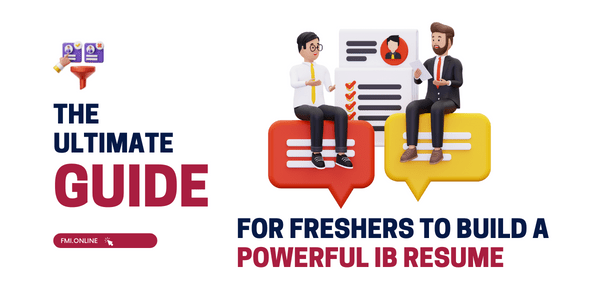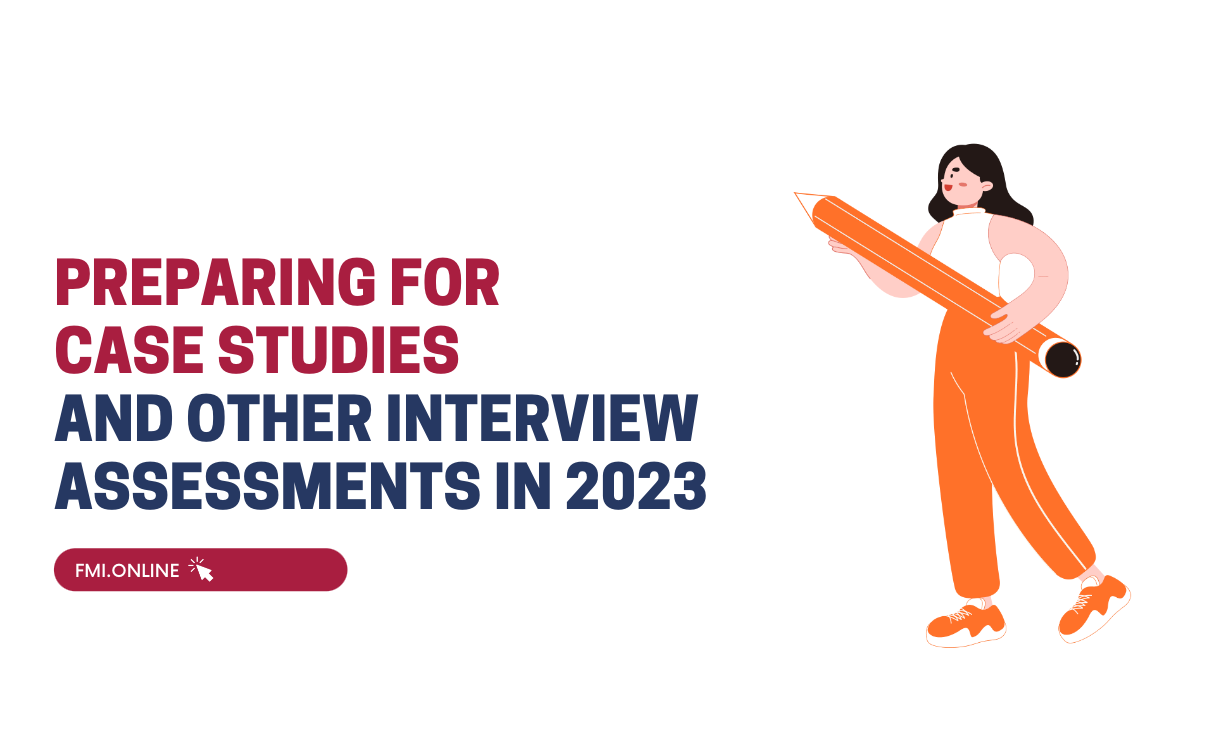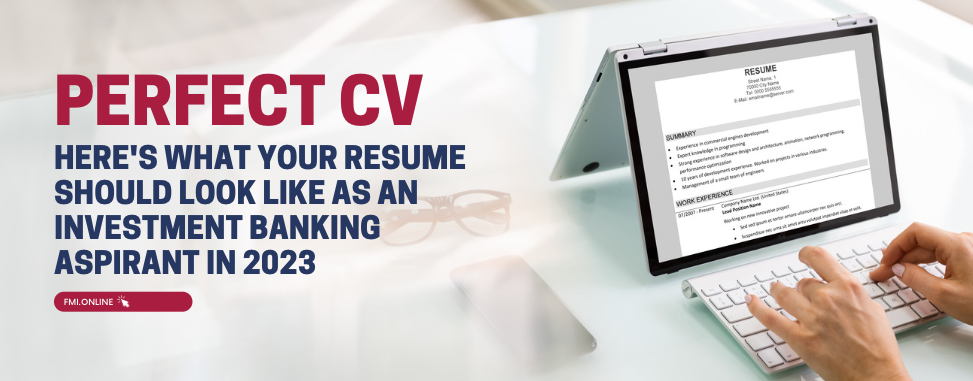Investment banking is a dynamic and competitive industry that requires specialised knowledge and experience. Career opportunities in investment banking are always available although they’re cyclical in nature, i.e, abundant in boom years and scarce in economic downturns.
When it comes to working toward your dream career, your resume is the first stage of job application. To maximise your chances of selection, you may want to learn about these tips for constructing an effective investment banking resume.
The First Step
Starting with the correct composition of your resume sections is the first step in building a constructive investment banking resume. Since you are planning to enter the industry, it is important that your education background should be the focus of your resume. Following is the list of sections vital for drafting a job-winning IB resume:
1. Personal Information
2. Summary/Objective
3. Education
4. Key Skills
5. Work experience (if any)
6. Certifications (if any)
7. Awards & Recognition (optional)
8. Additional Information (optional)
It is important to note that the resume format discussed above is a standard and widely used arrangement. You can adjust the format based on your own research.
Moreover, an applicant must recognise that there is a difference between a resume for an investment banking position and an accounting position. While an investment banking candidate may have some accounting courses in his/her degree which certainly adds value, highlighting a background in financial heavy courses such as financial analysis, M&A, valuation, IPO valuation, etc, is much more significant.
Summary/Objective
A resume’s objective showcases a brief account of your skill, achievements, and qualifications. It introduces your career goals and tells the recruiter why you will be a perfect fit for the company and its culture. Needless to say, it is imperative to modify this section to the specific opening. Further, by using relevant keywords in the summary section, you can bypass the filters used by recruiters or hiring agencies for the initial sorting (ATS system).
Education
To establish yourself as a worthy candidate, you must demonstrate a relevant educational background. In addition to mentioning the university where you studied and your degree(s), it’s important to mention any special designations or noteworthy academic achievements that you have pocketed during your education. Additionally, it is also worth mentioning any specialised courses that you completed pertaining to investment banking. For example, a bridge course in algorithmic trading, or statistical analysis, business law, and valuation of distressed assets can be highly useful to demonstrate in your resume.
Skills
It is important to focus on the skills that are most relevant to IB as well other skills that might set you apart. The skills section also acts as a great place to add in the important keywords, which helps your resume to get past the ATS systems.
If you can’t pen down enough hard skills (career specific), you can also list soft (personal) skills. This could include skills such as communication, presentation, team building, coordination and so on. However, it is necessary to note that many of these skills will be part of your investment banking skill set, such as being adept at presentations generally suggests that you are good with communication as well. So, you must exclude any such skills to avoid overlaps.
Work experience
Internships play a significant role in your selection for a job. When writing about your work experiences, such as summer internships, it is crucial to demonstrate how that brief period of working has made you more aware about the role that you are applying for and the inner working of the industry as a whole. You must also use this opportunity to showcase your willingness to give time and effort to the chosen job role. Further, It is always beneficial to have done an internship in the bank in which you wish to work for.
In case you don’t have any relevant work experience in the industry, you can make up for that by enrolling courses such as this in-depth Investment Banking pathway by FMI. You can add these in the certifications section to show your passion and commitment towards the industry. You can also mention your work experience in related fields such as business, equity investing/trading, etc.
Additional Sections
Apart from the above mentioned sections, there are additional sections that you can add to your resume such as: certifications, awards and recognitions, volunteering, etc. These sections alone are not enough to get you an investment banking job, however, they can surely help you stand out from other candidates. Specific interests such as music, research, community service coupled with a financial background can also help you get a job in specific departments. For example, an investment analyst who works in the entertainment industry.
Conclusion
An ideal resume sums up your skills and experiences to a hiring manager and can be structured in a few basic sections. The contact Information sections make it easier for people to contact you. A resume objective talks about your career goals and why you will be a good fit in the organisation. Adding relevant keywords in the skills section is to increase your chances of bypassing the ATS system. Lastly, your education and work experience sections throw light on the certifications and degrees that you have earned and the institutions that you have worked for.












 60+ hours
60+ hours 9 courses
9 courses



